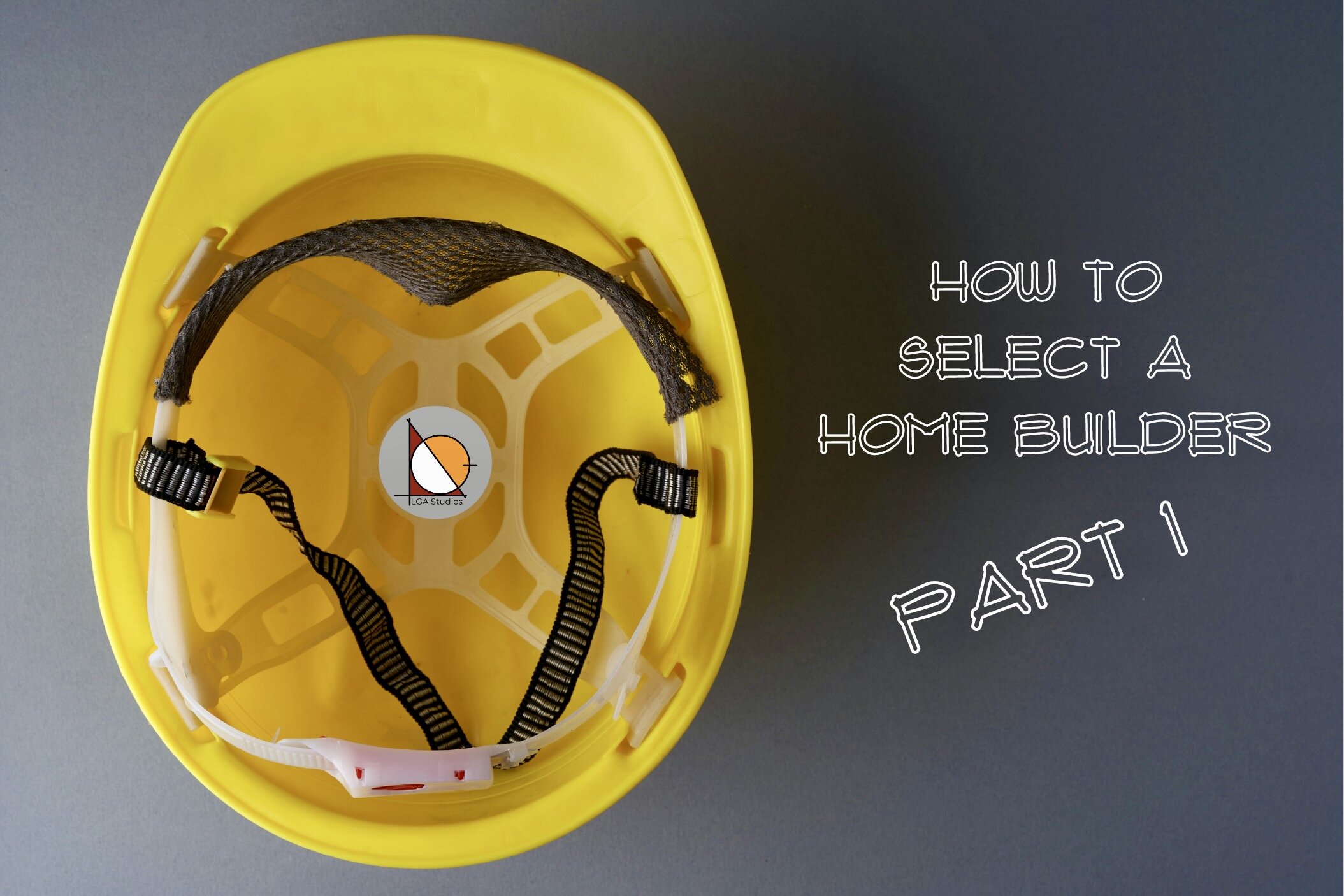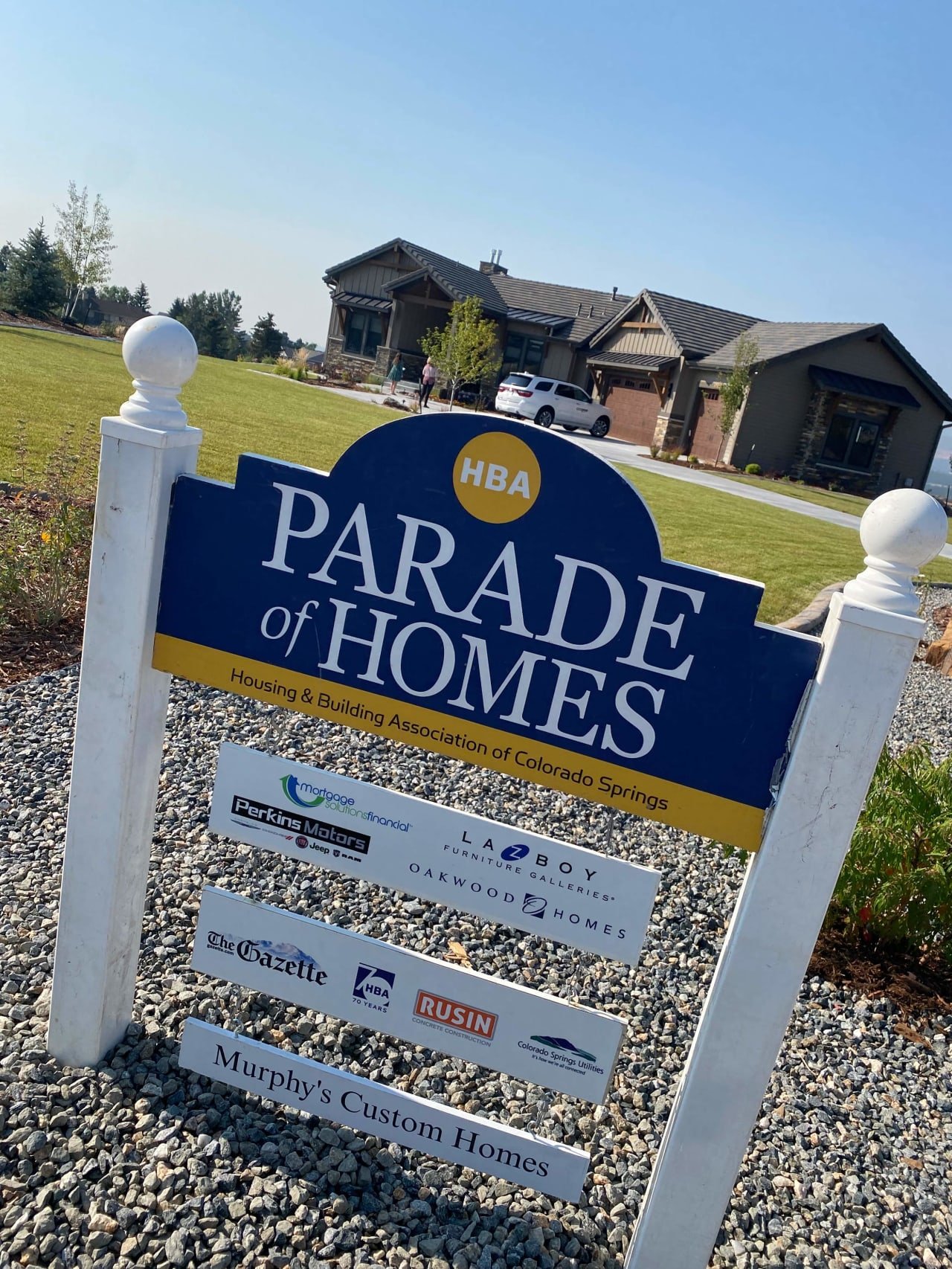How to Select a Home Builder, Part 1
▱ Part 1: Finding Builders ▱
By Larry Gilland
The statement made most by discouraged custom homeowners is “If I’d only known this (or that), I would have done it differently!" LGA Studios is dedicated to educating our clients and helping them achieve reasonable expectations. The more facts you have, the easier the custom home process becomes.
One of the first steps in the homebuilding process is selecting a home designer and builder. The order in which you find them is up to you or one may refer you to the other. Ideally, the designer and builder should work together from the beginning of the design process. They provide each other with information which will aid them in their efforts to satisfy all your requirements from the onset of the project. Although their backgrounds and knowledge are specialized, their fields of expertise focus on the same result and your best interests will be served.
There are numerous ways to obtain names of builders:
▱ Scanning the neighborhood(s): Drive through local neighborhoods and research them online. If you already love a house near your building site, you might find both the home designer and the builder through discovering who designed and built it. To ask the owner questions, you can obtain their name from the county clerk’s office if you know the street address.
As a courtesy to the homeowner, do not ring their doorbell unannounced. Write a friendly note of inquiry, enclosing your phone number and email address for their convenience. When you are in contact with the owner you will have the opportunity to find out more about the house's structure. Even if it was the previous owner who had the house custom built, you can find out the pros and cons of living in a house of that design from the current owner.
If you like the quality of construction or design of a house which is under construction, you can obtain the contractor's name from the building permit posted on the property or from a construction sign.
▱ Attending a "Parades of Homes": Usually, at a home show there are a number of custom homes in one location making it quite convenient to tour through different styles of homes built by a variety of contractors. Many of the homes may be for sale. Price ranges vary for the homes, but keep in mind that the prices quoted may or may not include the price of the land, furnishings, interior decoration, landscaping, and any repairs needed after the home show. If you’re interested in a specific home, make sure to request clarification on this issue, which can give you an idea about what your building dollar is worth.
Some other tips: as you tour through the homes, make notes on the brochures, and take photographs of ideas and details which you both like AND dislike (we suggest keeping a “Dream House File”). These photos will be quite helpful when you're conveying your ideas to the contractor and the designer you hire. Take your time if you like the house; it’s very easy to miss a whole section of a home as you move with the flow of traffic. If the traffic flusters you, try to tour the houses during the week when they are less busy.
This is a great opportunity to develop a sense of space and room size. If you like the size of a bedroom or dining room, make a note. Often the room dimensions will be on the brochures. There may be exhibits detailing specific items and ideas which are incorporated in the homes. Ask questions—none are too trivial. The information is free, and it may save you money in the long run.
If possible, attend with your spouse or whoever will be making decisions about your house with you. If you make an effort to learn and accommodate their tastes early on, it will save you time, money, and perhaps, your relationship! You might want to consider going without other family members (e.g., children) or friends so that you can focus on conversation with your partner.
▱ References from friends, relatives, or associates: Word of mouth can prove to be one of the best ways to acquire names of builders and good general advice. By learning from other’s experiences, you’ll be increasing your probability of success with your own custom home. Find out about how involved they were with the project and what they consider to be triumphs and mistakes.
When speaking to family members and associates who have built custom homes, keep a file of the names of the people, companies, and products that they liked and disliked. Do not, however, automatically discount a company or a product after receiving a negative recommendation. It may just be one person’s opinion, and what did not work for someone else may perfectly suit your situation. As opportunities arise to explore, be cautious, curious, and ask pertinent questions.
▱ References from your home designer: If you have already selected an architect or architectural designer, you may have automatically narrowed down the choice of builders to select from. These individuals have had the opportunity to develop a rapport with contractors. They know who they can work and communicate well with. Ask that they recommend at least three contractors who are capable of meeting your needs and the needs required by the house design. Do not limit yourself with just one recommendation even if it seems satisfactory.
▱ References from Home Builders Associations: Many cities have professional associations dedicated to building contractors in the area. The association may provide a list of builders, categorized by the style or size of houses, the average cost-per-square foot, or by the location in which most of their construction sites occur. The local Chamber of Commerce can help you locate such associations. Generally, the builders who are members of the associations must pay dues to belong. Keep in mind that a contractor who does not belong to the association may still be an excellent builder.
▱ Recommendations from realtors or real estate agents: If you’re unfamiliar with the area, your realtor can be helpful in recommending contractors who have built in the same location as your property. Be aware, however, that some contractors and realtors have reciprocal agreements which provide a referral fee to the realtor for guiding a homeowner to that contractor. For this reason, some realtors may work with one or a select few contractors who provide a referral fee to the realtor. Again, comparing the recommended builder with at least two others would be wise.





